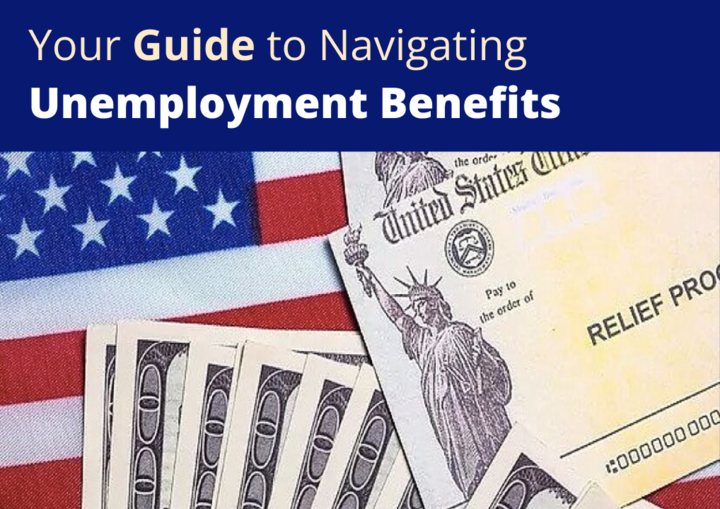Navigating the complexities of financial obligations is a crucial step in effective financial planning. Financial obligations encompass a wide range of responsibilities, including recurring expenses such as mortgage payments, utility bills, and insurance premiums, as well as long-term commitments like student loans and retirement savings. Understanding these obligations requires a comprehensive assessment of your current financial situation, including income sources, fixed and variable expenses, and any potential changes in your financial landscape.
For instance, if you are a homeowner, your mortgage payment is likely one of your largest monthly expenses, and it is essential to factor this into your overall financial strategy. Moreover, financial obligations can also extend to legal responsibilities, such as alimony or child support payments. These obligations can significantly impact your disposable income and should be prioritized in your budgeting process.
It is also important to consider the implications of any financial commitments you may have made in the past, such as co-signing loans or guarantees for family members. Each of these factors plays a vital role in shaping your financial health and future planning. By gaining a clear understanding of your financial obligations, you can create a more accurate picture of your financial landscape and make informed decisions moving forward.
Key Takeaways
- Understand your financial obligations by assessing your current financial situation and identifying your financial responsibilities.
- Evaluate your dependents’ needs by considering their current and future financial requirements, such as education, healthcare, and living expenses.
- Consider your income and assets to determine your financial capability to meet your obligations and provide for your dependents.
- Factor in outstanding debts to understand the impact on your financial obligations and the needs of your dependents.
- Assess future expenses, such as retirement, healthcare, and long-term care, to ensure you are adequately prepared for the future.
Evaluating Your Dependents’ Needs
When assessing your financial situation, it is imperative to evaluate the needs of your dependents. Dependents can include children, elderly parents, or anyone who relies on you for financial support. Each dependent may have unique needs that require careful consideration.
For example, if you have children, their educational expenses—such as tuition fees, school supplies, and extracurricular activities—should be factored into your financial planning. Additionally, you may need to consider the costs associated with childcare or after-school programs if both parents are working. In the case of elderly dependents, their healthcare needs can be significant and often unpredictable.
Long-term care insurance or savings for medical expenses should be part of your financial strategy to ensure that you can provide for their needs without jeopardizing your own financial stability. Furthermore, it is essential to consider the emotional and psychological aspects of supporting dependents. The responsibility of caring for others can create stress and anxiety, which can impact your overall well-being.
By thoroughly evaluating the needs of your dependents, you can develop a comprehensive financial plan that addresses both their immediate requirements and long-term goals.
Considering Your Income and Assets
A thorough understanding of your income and assets is fundamental to effective financial planning. Your income sources may include salary, bonuses, rental income, dividends from investments, or any other streams of revenue. It is essential to have a clear picture of your total income to create a realistic budget that aligns with your financial goals.
For instance, if you are considering purchasing a new home or investing in a business venture, knowing your income level will help you determine what you can afford without overextending yourself financially. In addition to income, evaluating your assets is equally important. Assets can include cash savings, real estate properties, stocks, bonds, and retirement accounts.
Each asset type has its own liquidity and risk profile, which can affect your overall financial strategy. For example, while real estate may appreciate over time, it is not as liquid as cash savings that can be accessed quickly in emergencies. Understanding the value and nature of your assets allows you to make informed decisions about investments and savings strategies that align with your long-term objectives.
Factoring in Outstanding Debts
Outstanding debts are a critical component of any financial assessment and can significantly influence your overall financial health. Common forms of debt include credit card balances, personal loans, student loans, and mortgages. Each type of debt comes with its own interest rates and repayment terms, which can affect your cash flow and ability to save for future goals.
For instance, high-interest credit card debt can quickly accumulate if not managed properly, leading to a cycle of debt that is difficult to escape.
When evaluating outstanding debts, it is essential to prioritize them based on interest rates and repayment schedules. Creating a debt repayment plan can help you systematically reduce your liabilities while maintaining a healthy credit score.
Additionally, understanding the implications of debt on your overall financial picture allows you to make strategic decisions about future borrowing. For example, if you are planning to apply for a mortgage or car loan in the near future, having a clear plan for managing existing debts will improve your chances of securing favorable loan terms.
Assessing Future Expenses
Planning for future expenses is an integral part of sound financial management. These expenses can range from predictable costs such as tuition fees or home maintenance to unexpected events like medical emergencies or job loss. By anticipating future expenses, you can create a more robust budget that accommodates both planned and unplanned costs.
For instance, setting aside funds for major life events—such as weddings or home renovations—can prevent financial strain when these occasions arise. Moreover, it is essential to consider potential lifestyle changes that may impact future expenses. For example, if you plan to expand your family or relocate for work, these decisions will likely lead to increased costs that need to be factored into your financial planning.
Additionally, as you age, certain expenses may become more prevalent—such as healthcare costs or retirement savings—requiring adjustments to your budget and investment strategies. By proactively assessing future expenses, you can build a more resilient financial plan that withstands the uncertainties of life.
Taking into Account Inflation
Inflation is an economic factor that can erode purchasing power over time and must be considered in any long-term financial plan. As prices rise due to inflationary pressures, the value of money decreases, meaning that the same amount of money will buy fewer goods and services in the future than it does today. This reality underscores the importance of investing in assets that have the potential to outpace inflation over time—such as stocks or real estate—rather than keeping large sums of cash in low-interest savings accounts.
When planning for retirement or other long-term goals, it is crucial to factor in an estimated inflation rate to ensure that your savings will maintain their purchasing power over time. For example, if you anticipate needing $100,000 annually in retirement today, considering an average inflation rate of 3% means that you will need approximately $181,000 annually in 20 years just to maintain the same standard of living. By incorporating inflation into your financial projections, you can make more informed decisions about how much to save and invest today to secure your future financial well-being.
Factoring in Funeral and End-of-Life Expenses
While often overlooked in financial planning discussions, funeral and end-of-life expenses are significant considerations that should not be ignored.
The costs associated with funerals can vary widely depending on factors such as location, type of service chosen, and additional arrangements like burial plots or cremation services.
On average, funeral costs in the United States can range from $7,000 to $12,000 or more when factoring in all associated expenses.
Planning for these costs ahead of time can alleviate the financial burden on loved ones during an already difficult time. Pre-planning funeral arrangements or setting aside funds specifically for this purpose can ensure that your wishes are honored while minimizing stress for family members left behind. Additionally, it is wise to consider other end-of-life expenses such as medical bills or long-term care costs that may arise before passing away.
By addressing these issues proactively within your financial plan, you can provide peace of mind for both yourself and your family.
Consulting with a Financial Advisor
Engaging with a financial advisor can be one of the most beneficial steps in navigating complex financial landscapes. A qualified advisor brings expertise in various areas such as investment strategies, tax planning, retirement savings, and estate planning—allowing you to make informed decisions tailored to your unique circumstances. They can help identify gaps in your current financial plan and provide guidance on how best to allocate resources based on your goals and risk tolerance.
Moreover, a financial advisor can offer an objective perspective on your finances that may be difficult to achieve on your own. Emotional biases often cloud judgment when it comes to money management; having an expert by your side can help mitigate these biases and keep you focused on long-term objectives rather than short-term fluctuations in the market or personal circumstances. Whether you’re just starting out on your financial journey or looking to refine an existing plan, consulting with a financial advisor can provide invaluable insights that lead to greater financial security and peace of mind over time.
Life Insurace Powered By eFinancial
FAQs
What factors should I consider when determining how much life insurance coverage I need?
When determining how much life insurance coverage you need, it’s important to consider factors such as your current financial obligations, future financial goals, income replacement needs, outstanding debts, and potential future expenses such as college tuition for children.
How can I calculate the amount of life insurance coverage I need?
One common method for calculating the amount of life insurance coverage you need is to multiply your annual income by a certain factor, such as 10 or 15, to account for future financial needs. You can also consider using online life insurance calculators or consulting with a financial advisor for a more personalized assessment.
What are the consequences of having too little life insurance coverage?
Having too little life insurance coverage can leave your loved ones financially vulnerable in the event of your death. They may struggle to cover expenses such as mortgage payments, childcare, and other living costs, potentially leading to financial hardship.
What are the consequences of having too much life insurance coverage?
Having too much life insurance coverage can lead to unnecessary expenses in the form of higher premiums. It’s important to strike a balance and ensure that your coverage adequately meets your financial needs without being excessive.
How often should I review my life insurance coverage needs?
It’s recommended to review your life insurance coverage needs whenever you experience major life changes, such as getting married, having children, buying a home, or changing jobs. Additionally, it’s a good idea to review your coverage annually to ensure it still aligns with your financial situation and goals.







